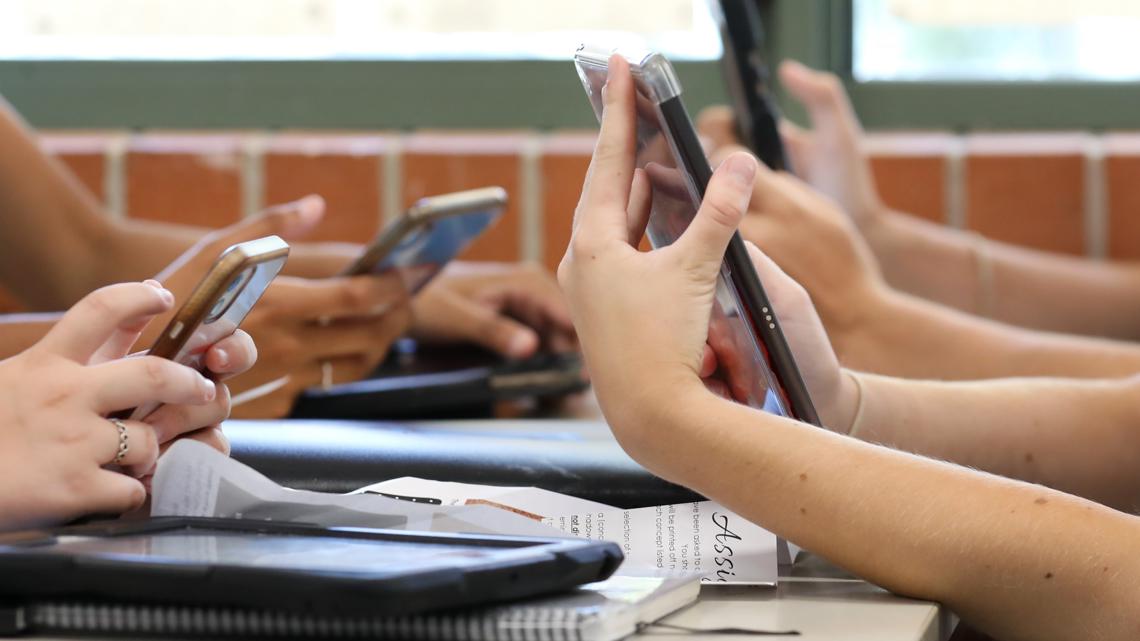The bill requires policies to have language that allows students to use cell phones and computers during instructional time with teachers’ permission.
NASHVILLE, Tenn. — The Tennessee House of Representatives passed a bill Monday that requires schools across the state to create policies prohibiting students from using cell phones, tablets, laptops or gaming devices during class.
The bill, HB 0932, was introduced by Representative Rebecca Alexander (R-Jonesborough). While it generally requires prohibitions on wireless communication devices, it also requires schools to include language in their policies that allow devices to be used with permission from teachers.
The bill also has some language protecting students with disabilities who rely on devices. It requires schools to allow students to use their devices if they are included in programs approved under the federal Individuals with Disabilities Education Act, an active 504 plan or an individual learning plan.
Any device capable of “voice, messaging, or other data communication between two or more parties” is included in the bill. It would also allow devices to be used during emergencies or to help manage their health.
“This bill just eliminates the use of cell phone or any wireless communication device during instructional time, during our schools, so our kids can learn better. It will allow all the districts to put into place their own policy that is usable in their district and in their school,” said Alexander.
Representative Caleb Hemmer (D-Nashville) said he supported the bill, believing it would help result in better mental health outcomes for students. Representative Gloria Johnson (D-Knoxville) asked whether teachers could use cell phones for instruction. Alexander said they would be able to, as long as the school district allows it.
“I’m unaware of a school system that doesn’t already have a policy. Most of them, or all of them to my knowledge, every one that I called, already has a policy and has had a policy for years,” she said.
Alexander said superintendents asked her to introduce the bill so “it would become a law.” She also said the bill gives schools leeway to design their own policies, letting them “have the choice as to whether they want it to be just during instructional time, if they want it to be for the whole school day; they have a choice on what to do with those cell phones when a student enters the building with them, and they have a choice of their policy as far as disciplinary measures.”
Representative John Ray Clemmons III (D-Nashville) asked whether the bill included guarantees that students would have access to devices during emergencies. Alexander said the state asked school boards to “put in place a policy to communicate to parents in the event of an emergency situation.”
If it passes in the Senate, the bill could go into effect on July 1, applying to the 2025-2026 school year and each school year afterward.


